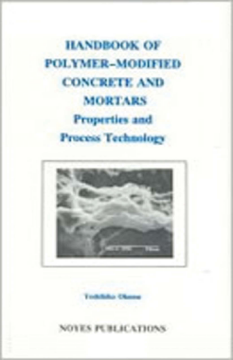
Additional Information
Book Details
Abstract
Mortar and concrete made with portland cement has been a popular construction material in the world for the past 170 years or more. However, cement mortar and concrete have some disadvantages such as delayed hardening, low tensile strength, large drying shrinkage and low chemical resistance. To reduce these disadvantages, polymers have been utilized as an additive.
Polymer-modified or polymer cement mortar (PCM) and concrete (PCC) are the materials which are made by partially replacing the cement hydrate binders of conventional cement mortar or concrete, with polymers. This book deals with the principles of polymer modification for cement composites, the process technology, properties and applications of the polymer-modified mortar and concrete, and special polymer-modified systems such as M DF cement, antiwashout underwater concrete, polymer-ferrocement, and artificial I wood.
The polymeric admixtures or cement modifiers include latexes or emulsions, redispersible polymer powders, water-soluble polymers, liquid resins and monomers.
This book describes the current knowledge and information of polymer-modified mortars and concretes, and discusses or reviews the following items in detail:
1. Principles of polymer modification for cement composites.
2. Process technology of polymer-modified mortars and concretes.
3. Properties of polymer-modified mortars and concretes.
4. Applications of polymer-modified mortars and concretes.
5. Special polymer-modified systems such as MDF cements, antiwashout underwater concretes, polymer-ferrocements, and artificial woods.
"...handbook will be of use to materials scientists, building and civil engineers, architects, chemical engineers and students in these areas." - Polymer News
